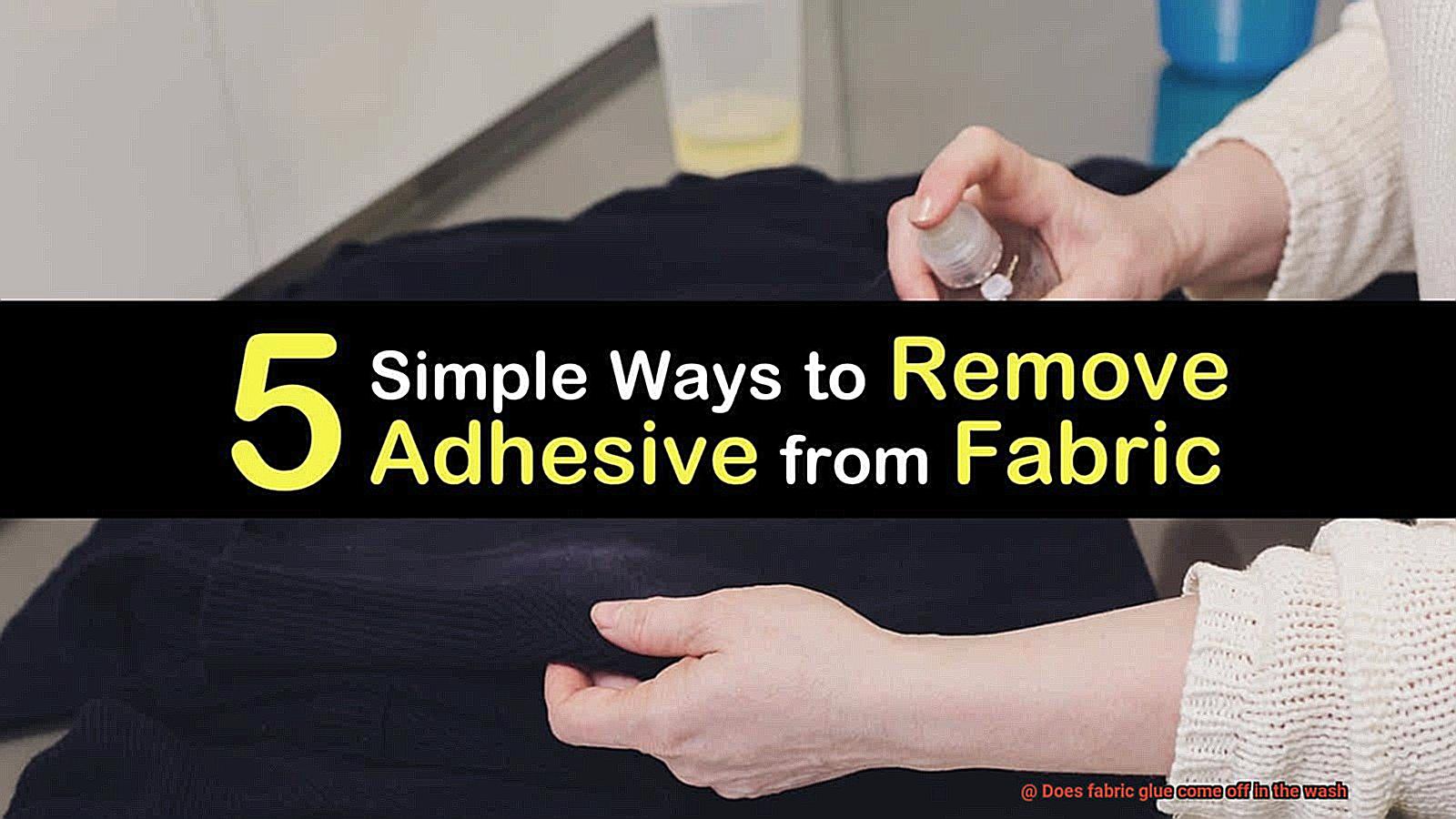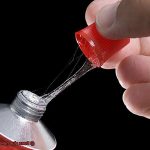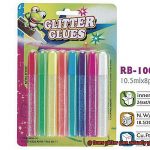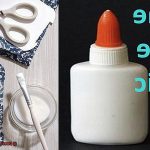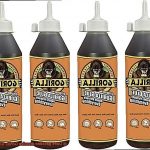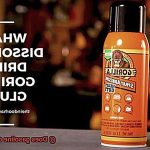Sewing has always been the go-to method for garment construction. But hey, have you heard about fabric glue? It’s like a secret weapon that’s been quietly gaining popularity. Why? Because it’s easy peasy and saves you time. But hold up. Before you dive into the world of fabric glue, there’s one burning question we need to answer: does it come off in the wash? We’re here to spill all the tea on fabric glue – its pros, cons, and most importantly, whether it can survive a spin cycle. So buckle up and let’s find out if fabric glue truly holds its ground when it comes to laundering garments.
What is Fabric Glue?
Contents
Prepare to enter a world where fabric repair and embellishment become a breeze, thanks to the marvel that is fabric glue. This game-changing adhesive has revolutionized the crafting and DIY community, offering an ingenious alternative to traditional sewing methods.
Whether you’re mending a torn garment or unleashing your creativity onto fabrics, fabric glue is the versatile adhesive wizard that grants your wishes. Join us on this enchanting journey as we delve into the realm of fabric glue, exploring its uses, advantages, and expert tips for choosing the perfect potion for your projects.
The Alchemical Composition of Fabric Glue:
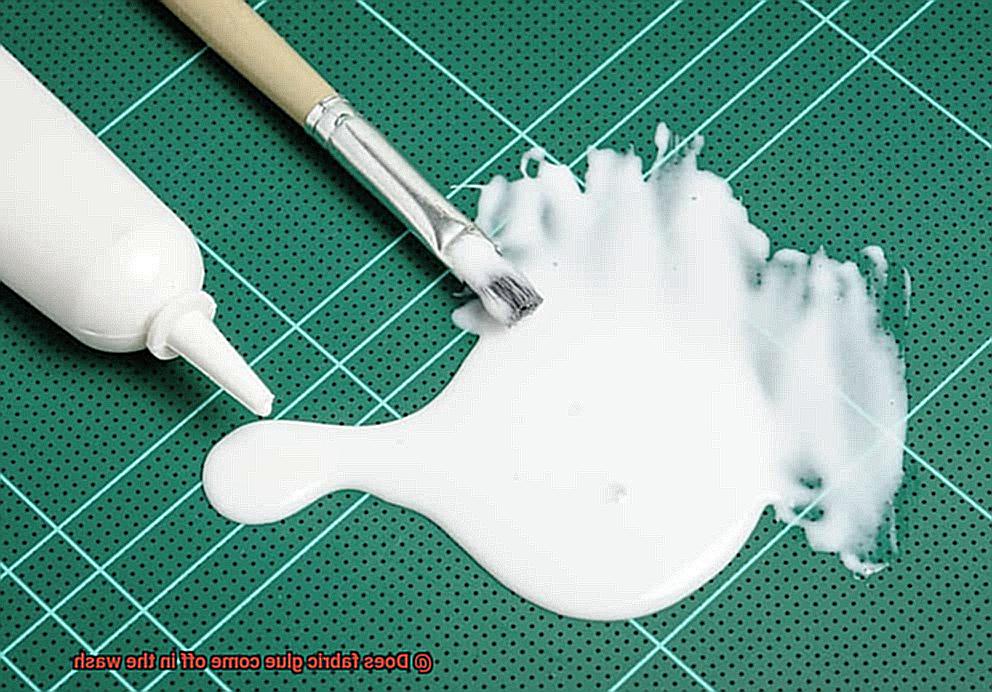
Fabric glue is a magical concoction meticulously crafted with synthetic polymers like polyvinyl acetate (PVA) or acrylics. These alchemical wonders possess the adhesive properties necessary for seamlessly bonding fabric fibers together. It’s as if these polymers were born to unite fabrics, creating a bond strong enough to withstand the test of time.
Unveiling the Different Forms of Fabric Glue:
Fabric glue comes in various forms, each with its own unique charm.
Liquid fabric glue, with its graceful fluidity, allows for precise application and control, making it the perfect choice for delicate projects. Gel fabric glue, on the other hand, possesses a thicker consistency, ideal for vertical applications or bonding heavier fabrics.
And let us not forget the charming stick fabric glue, resembling a traditional glue stick that effortlessly glides onto fabrics, ready to weave its magic.
The Versatile Uses of Fabric Glue:
Prepare to be dazzled by the versatility of fabric glue. Its powers extend far beyond simple repairs. Crafters and artists alike harness its magic to bring their visions to life. From repairing cherished garments to attaching patches with precision, fabric glue becomes your trusted companion throughout your creative journey.
Are you yearning to create magnificent costumes or add a touch of glamour to your fabrics?
Fabric glue is your secret weapon, effortlessly bonding decorative elements like beads and sequins to fabrics. It even possesses the power to bond different types of fabrics together or adhere fabrics to non-fabric surfaces like wood or plastic. The possibilities are endless.
The Enchanting Advantages of Fabric Glue:
Fabric glue’s mystical powers extend beyond its versatility. Prepare to be enchanted by its quick drying times, allowing you to complete projects in a fraction of the time.
No more waiting around for hours on end. And fear not, for fabric glue is no illusionist—it creates bonds that can withstand the rigors of everyday wear and tear.
Garments repaired with fabric glue become warriors against time, defying the odds and remaining intact for years to come.
Does Fabric Glue Come Off in the Wash?
Fabric glue is a versatile adhesive that is widely used in various crafting and sewing projects. One common concern that crafters and DIY enthusiasts have is whether fabric glue will hold up after being washed. In this article, we will delve into the world of fabric glue and uncover the secrets behind its washability.
Exploring the Factors:
To understand if fabric glue will come off in the wash, we need to consider several factors. Firstly, the type of fabric glue used plays a crucial role. Some fabric glues are specifically formulated to be washable, while others may not be intended for washing or have limited washability.
Reading the Manufacturer’s Instructions:
To determine if a particular fabric glue is washable, it is vital to carefully read and follow the instructions provided by the manufacturer. The packaging or label should indicate whether the glue is suitable for washing or if there are any specific care instructions to follow.
Washable Fabric Glues:
Fabric glues labeled as “washable” or “machine washable” are more likely to withstand washing without coming off. These glues are specially formulated with ingredients that make them resistant to water and detergent.
Taking Precautions:
Even with washable fabric glues, it is advisable to take certain precautions to ensure the longevity of the bond. Using a gentle cycle and cold water when washing the fabric can help minimize stress on the adhesive. Additionally, avoiding harsh detergents or bleach can also help preserve the integrity of the glued area.
Limitations of Fabric Glue:
It’s important to note that fabric glue may not be as durable as traditional sewing or stitching, especially when it comes to heavy-duty fabrics or items that undergo frequent washing. For long-lasting and strong bonds, using traditional sewing techniques may provide better results.
Types of Fabric Glue
Fabric glue is a versatile tool that can make your sewing and crafting projects a breeze. With various types of fabric glue available, it can be overwhelming to choose the right one for your project. In this comprehensive guide, we will explore the different types of fabric glue and provide tips on how to select the perfect adhesive for your needs.
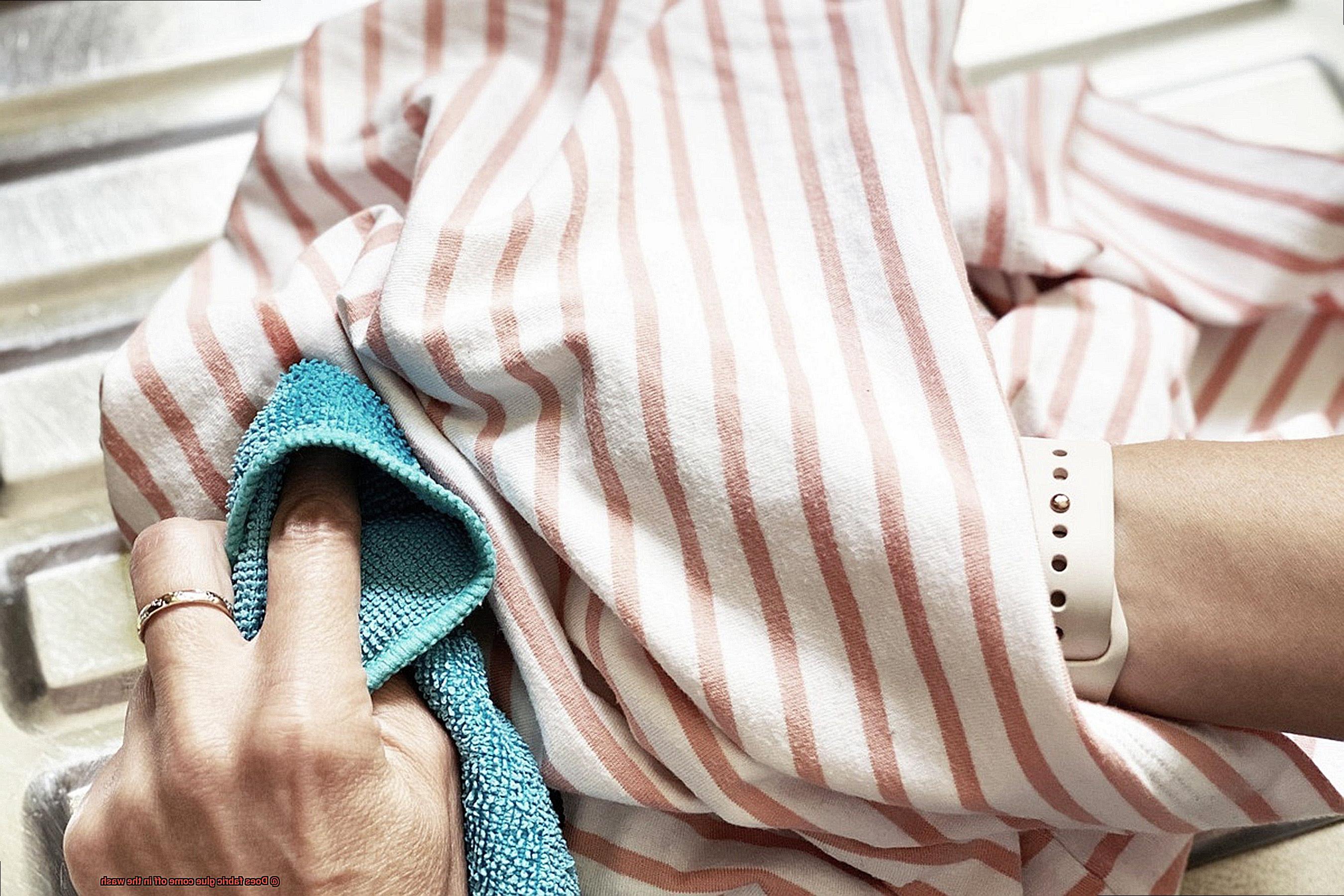
Water-based Fabric Glue:
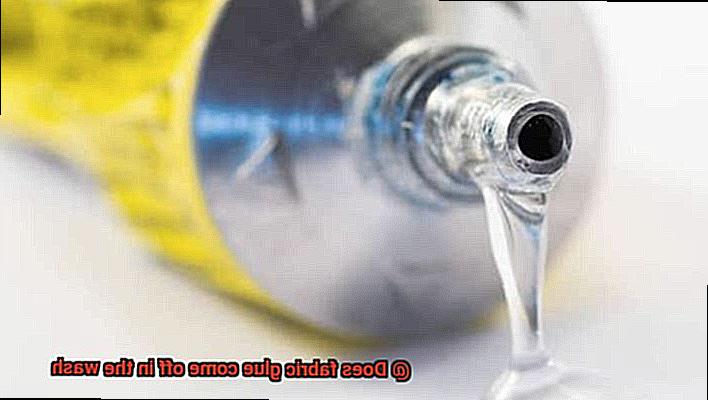
Water-based fabric glue is a popular choice due to its ease of use and versatility. This type of glue is non-toxic, making it safe for use on all fabrics. It dries clear and flexible, ensuring a seamless finish. Water-based fabric glue is ideal for temporary projects or items that require frequent washing, as it can be easily washed off in the machine.
Heat-set Fabric Glue:
For projects that require a permanent bond, heat-set fabric glue is the way to go. Activated by heat through an iron or heat press, this glue forms a strong and durable bond that withstands washing and dry cleaning. It is perfect for hemming garments or attaching appliques securely. Heat-set fabric glue provides a long-lasting hold that ensures your creations stay intact for years to come.
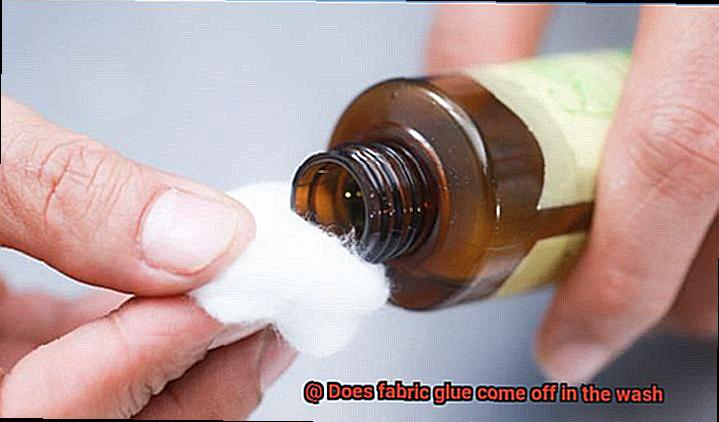
Delicate Fabrics:
If you’re working with delicate fabrics like silk or lace, a fabric-safe or gentle adhesive is essential. These glues are specifically formulated to provide a secure bond without damaging or discoloring delicate materials. While they may not withstand repeated washings, they are great for temporary repairs or embellishments on delicate fabrics where traditional sewing may not be suitable.
Specialty Fabric Glues:
Certain fabrics require specific adhesives for optimal results. Leather or vinyl fabrics, for example, need stronger adhesives to ensure a lasting bond. There are specialty fabric glues designed specifically for these types of materials, providing the necessary strength and durability.
Outdoor fabric glues are also available, which are resistant to water and UV rays, making them perfect for outdoor projects or items exposed to the elements. Using specialty fabric glues ensures durability and versatility when working with different fabric types.
Washing Considerations:
When choosing a fabric glue, it’s crucial to consider the washability of your chosen adhesive. Some glues can withstand multiple washings without losing their adhesive properties, while others may weaken or dissolve over time.
Always read the instructions provided with the fabric glue to ensure proper usage and maintenance. If you anticipate frequent washing of your project, opt for a fabric glue that is specifically designed for washability.
Permanent vs Non-Permanent Glues
When it comes to fabric glue, there are two main options to consider: permanent and non-permanent. These two types of glues may seem similar, but they have distinct differences that can greatly impact the outcome of your project.
Let’s start with permanent fabric glue. As its name suggests, this glue is designed to create a bond that lasts. It is more durable and resistant to washing and wear and tear. If you’re working on a project that requires a strong and long-lasting bond, such as repairing a torn seam or attaching embellishments to fabric, permanent fabric glue is your best bet. Examples of permanent glues include epoxy glue and super glue, which provide an exceptionally strong bond.
On the other hand, non-permanent fabric glue offers a temporary solution that can be easily removed. This type of glue provides a less strong bond and may not hold up well in situations where the material will be subjected to frequent washing or handling. Non-permanent fabric glues, like craft glue and school glue, are ideal for projects that require flexibility and easy repositioning.
One important factor to consider is washability. Permanent fabric glues are typically solvent-based adhesives that create a strong bond between fabric fibers. While some may claim to be washable, they may leave behind residue or weaken over time with repeated washing. Non-permanent fabric glues, on the other hand, are water-soluble adhesives that can be easily washed out without damaging the fabric.
It’s worth mentioning that not all fabric glues are created equal. Some non-permanent glues may offer better washability than others, so it’s important to read the label or product description carefully before purchasing. Look for glues that specifically mention being washable and follow the manufacturer’s instructions regarding washing and care for the glued item to ensure the best results.
In terms of adhesion strength, permanent fabric glues usually offer a stronger bond compared to non-permanent glues. However, if you’re working on a project that requires frequent washing or exposure to water, it’s a good idea to reinforce the bond with additional methods such as sewing or using iron-on patches.
Drying time is another factor to consider. Permanent glues generally have a longer drying time, allowing you more time to position and adjust your fabrics before the glue sets. Non-permanent glues, on the other hand, often dry faster, making them more suitable for quick projects.
Lastly, cost is an important factor. Permanent glues tend to be more expensive due to their stronger bonding properties and durability. Non-permanent glues are usually cheaper and readily available in most craft stores.
How to Ensure Fabric Glue Stays Intact in the Wash
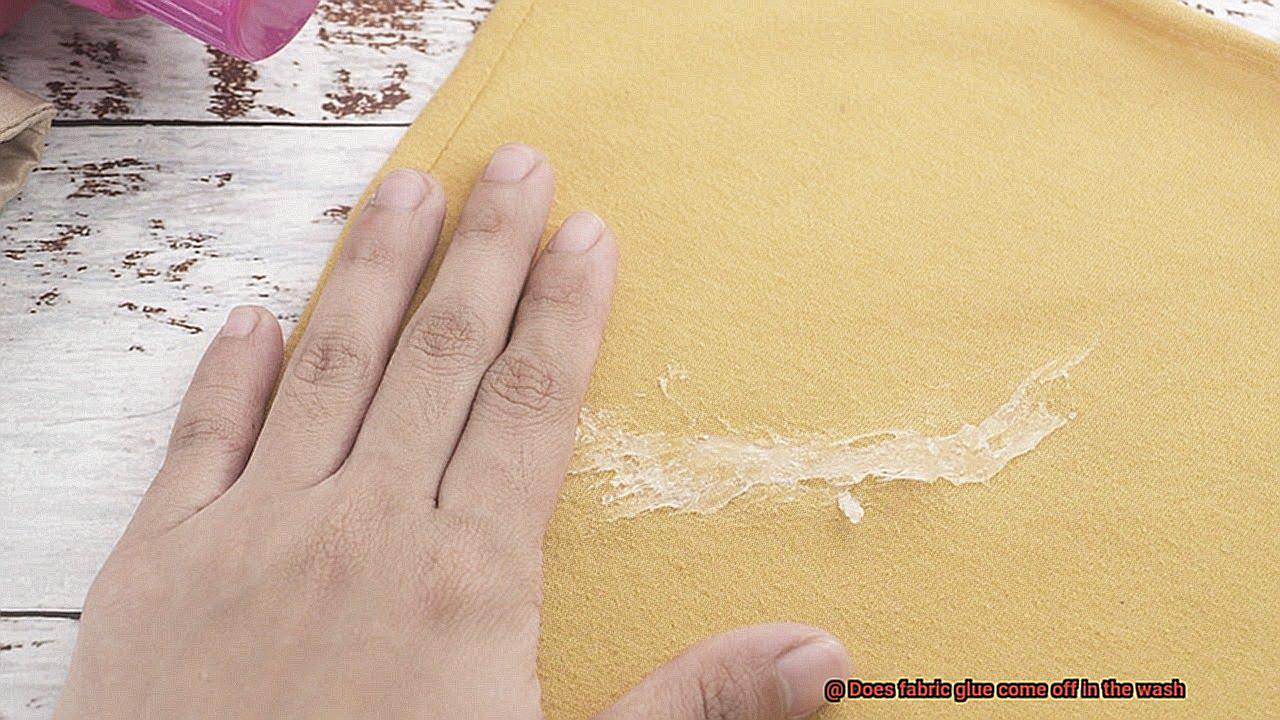
Fabric glue is a versatile adhesive used for various fabric projects, but many people wonder if it will hold up in the wash. In this article, we will explore how you can ensure that your fabric glue stays intact during washing.
By following these simple tips and techniques, you can maintain the longevity of your fabric creations.
Choose the Right Fabric Glue:
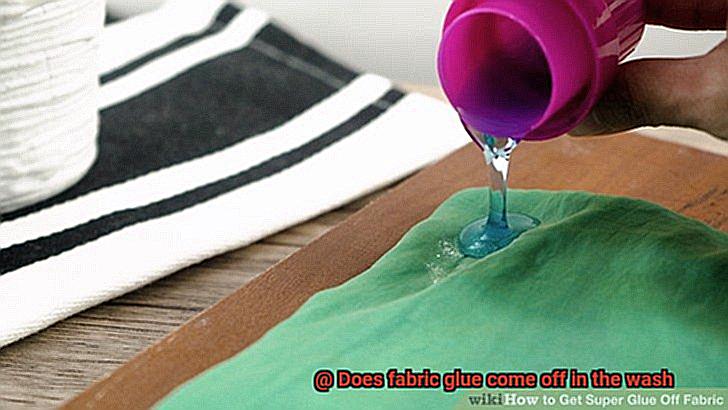
To ensure that your fabric glue withstands washing, it’s crucial to choose the right type of adhesive. Look for fabric glues specifically designed for washability. These glues are formulated to withstand water, detergent, and the agitation of a washing machine. By selecting a high-quality fabric glue, you can rest assured that it will stay intact through multiple washes.
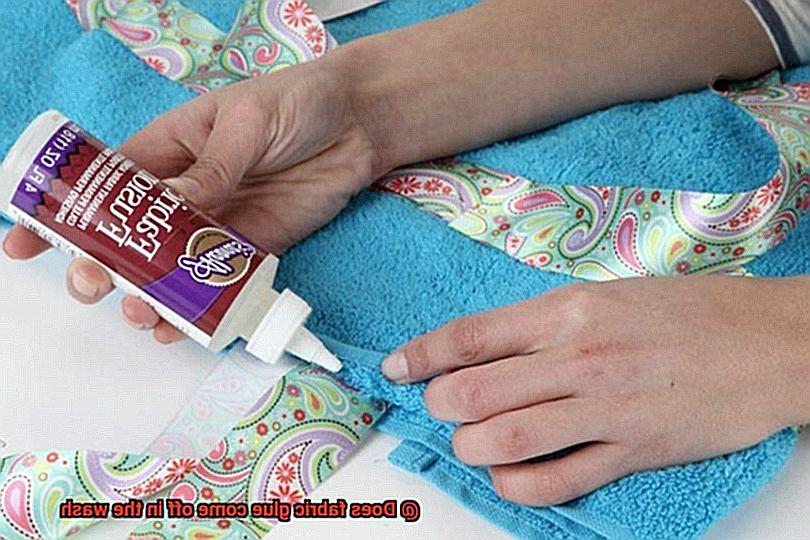
Apply with Precision:
The application technique is vital when it comes to ensuring the durability of fabric glue in the wash. Follow the manufacturer’s instructions carefully, applying the glue evenly and generously on both surfaces that need to be bonded.
This ensures a strong and secure hold that won’t come undone in the washing machine. Take your time during this step to guarantee proper adhesion.
Prepare Your Fabric:
Before applying fabric glue, it’s essential to prepare the fabric properly. Clean and dry the fabric thoroughly, removing any dirt, oils, or moisture that could interfere with the bonding process. A clean surface ensures a stronger bond between the fabric and the glue, increasing its resistance to washing.
Activate with Heat:
Heat-setting can significantly improve the washability of fabric glue. Most fabric glues require heat activation for maximum strength and durability. Use an iron or heat press at the recommended temperature and duration specified by the manufacturer to permanently bond the glue to the fabric fibers. This step creates a more resilient bond that can withstand repeated washings.
Practice Proper Care:
Taking care of your fabric items bonded with glue is crucial for ensuring their longevity in the wash. Follow the care instructions provided by the manufacturer, as different glues may have specific requirements. Avoid using harsh detergents, bleach, or fabric softeners that can weaken the glue’s bond. Opt for mild detergents and gentle wash cycles to preserve your fabric creations.
What to Do If Fabric Glue Comes Off in the Wash
Uh-oh. Did your fabric glue come off in the wash? No worries, we’ve got your back. In this article, we’ll provide clear and concise steps to help you handle this sticky situation and salvage your cherished creations. Let’s dive right in.
Step 1: Scrape off Loose Glue:
Carefully scrape away any loose glue from the fabric using a dull knife or plastic scraper. Take your time and be gentle to protect your masterpiece.
Step 2: Check the Care Label:
Refer to the care label on your fabric to determine the recommended washing instructions. This valuable information will guide you in treating your fabric properly.
Step 3: Pretreat the Area:
For machine-washable fabrics, pretreating is a must. Apply a stain remover or pre-wash treatment directly onto the affected area. Let it sit for a few minutes to work its magic.
Step 4: Wash with Care:
Follow the care label instructions and wash your fabric using a gentle cycle and cold water. Avoid hot water, as it can make the remaining glue residue harder to remove.
Step 5: Air-Dry, Don’t Tumble Dry:
After washing, air-dry your fabric instead of using a dryer. High heat can set any remaining glue into the fibers, making it even more challenging to remove.
Step 6: Remove Stubborn Residue:
If there are still traces of glue on your fabric after air-drying, don’t fret. Try using a solvent-based stain remover specifically designed for glue or adhesive removal. Apply a small amount onto a clean cloth and gently dab at the remaining glue until it lifts off.
Step 7: Seek Professional Help:
If all else fails, it might be time to call in the professionals. Take your fabric to a professional cleaner who specializes in dealing with glue or adhesive stains. They have the expertise and tools to safely remove stubborn residue without damaging your fabric.
Tips for Removing Residual Fabric Glue
In this article, we will share some magical tips and techniques to help you remove that stubborn glue from your fabrics. Grab your reading glasses and let’s dive in.
Rubbing Alcohol – A Magical Solution:
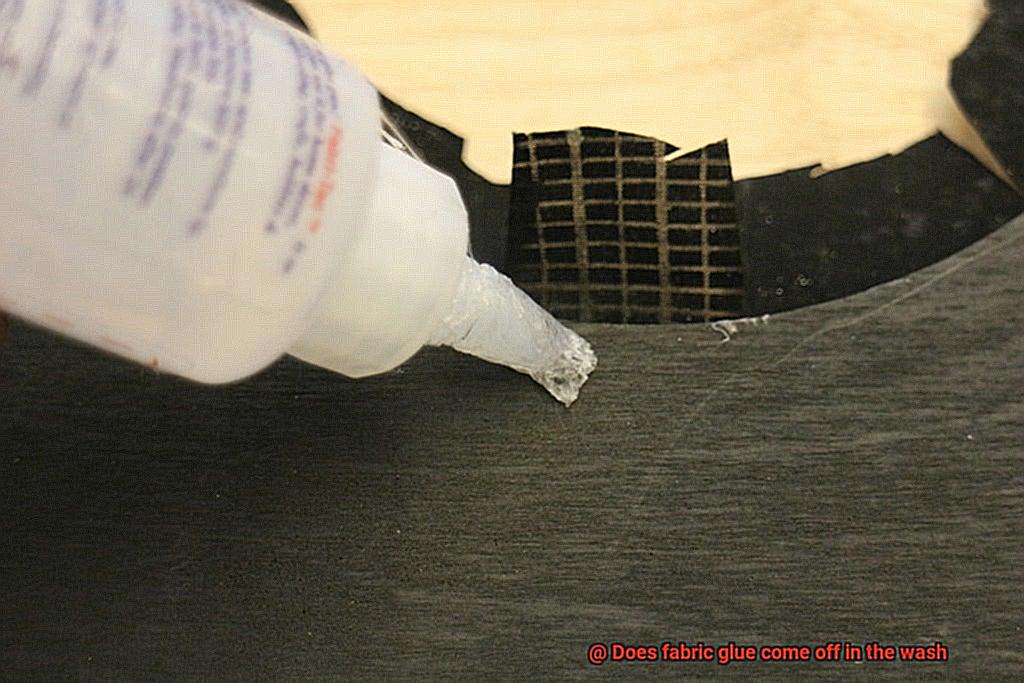
When it comes to removing fabric glue residue, rubbing alcohol is your secret weapon. Soak a cloth or cotton ball in rubbing alcohol and gently rub the affected area. Like magic, the alcohol breaks down the glue, making it easier to remove. But remember, test it on a hidden spot first to avoid any damage.
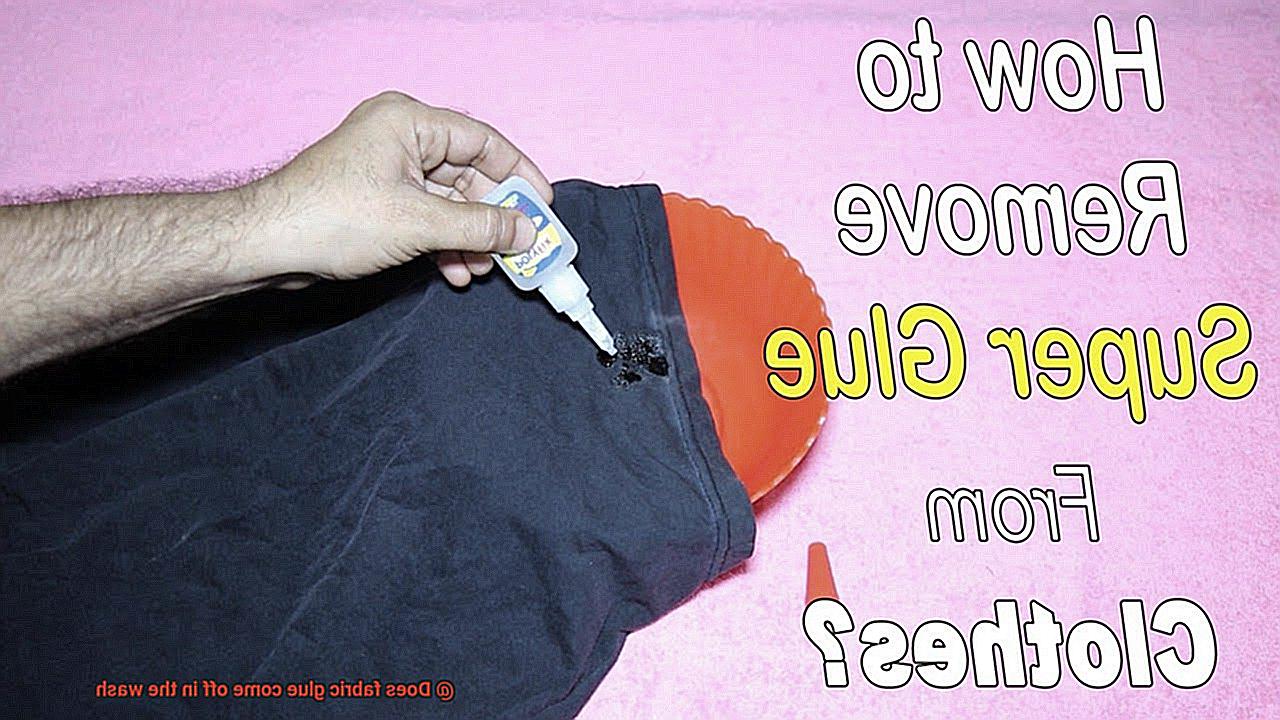
Commercial Adhesive Removers – Ready to Save the Day:
Commercial adhesive removers are superheroes when it comes to removing stubborn fabric glue. Look for a remover that is safe for fabrics and follow the instructions carefully. Apply the remover to a clean cloth or cotton swab, dab the glue residue gently, and let it sit for a few minutes. Then, use a clean cloth or sponge with warm water to blot and rub away the dissolved glue.
Gentle Approach with Warm Soapy Water:
For delicate fabrics or those who prefer a gentler method, warm soapy water is your go-to solution. Mix warm water with mild detergent and gently rub the affected area using a cloth or sponge. Avoid scrubbing too hard as it may damage the fabric. Rinse with clean water and repeat if needed.
Scraping Tools – Be Gentle, Be Careful:
When faced with extra sticky situations, try using a plastic scraper or credit card to remove as much glue as possible without damaging the fabric. Once most of the glue is gone, use one of the above methods to clean up any remaining residue.
Read and Follow Care Instructions:
Always read and follow the care instructions on your fabric before attempting any glue removal methods. Different fabrics may require specific steps or precautions to avoid damage. Better safe than sorry.
9PUM01QfjIA” >
Conclusion
Fabric glue is a convenient tool for bonding fabrics together. However, one burning question remains: does fabric glue come off in the wash? You may be pleased to know that, in most cases, fabric glue does not come off in the wash. This means that your carefully crafted garments and DIY projects can withstand the test of time and regular laundering.
The beauty of fabric glue lies in its ability to create strong bonds between fabrics. Once dry, it forms a durable adhesive that can withstand the rigors of washing machines and detergents. So, whether you’re attaching patches to your favorite denim jacket or embellishing a pair of jeans with rhinestones, you can rest assured that your hard work will not go down the drain.
But how does fabric glue manage to stay intact during washing? The secret lies in its composition. Fabric glues are specifically designed to resist water and maintain their adhesive properties even when submerged in soapy suds. This means that your glued-on decorations or repaired hems will remain securely in place throughout multiple wash cycles.
It’s important to note that while most fabric glues are machine-washable, some may have specific care instructions. Always read the label or manufacturer’s recommendations before tossing your glued garments into the washer. Following these guidelines ensures optimal results and helps preserve the longevity of your creations.
In conclusion, fabric glue is a reliable ally for all your sewing and crafting endeavors. Its steadfast nature ensures that your glued fabrics will remain intact even after repeated trips through the washing machine.

